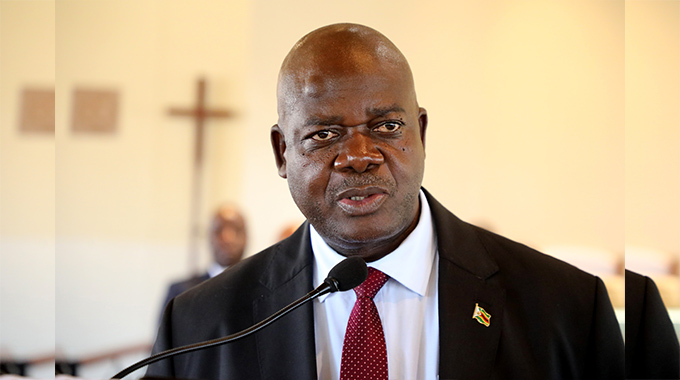Zimbabwe shifts education focus: From job seekers to innovators and industrialists

Amos Mpofu, [email protected]
BY aligning our education system with national development goals, prioritizing skills training and development, and fostering a culture of science, technology, and innovation for industrialisation, we are laying the groundwork for Zimbabwe’s sustainable growth and prosperity, the Government has said.
The Ministry of Higher and Tertiary Education, Innovation, Science and Technology Development’s newsletter, titled “Achievements and Way Forward,” features Professor Amon Murwira, the Minister, outlining the ministry’s accomplishments since implementing the Heritage-based Education system, Education 5.0, and charting the course for the future.
“We have reconfigured our education system from Education 3.0, which focused on producing job seekers, to Heritage- Based Education 5.0, which incorporates innovation and industrialisation as the fourth and fifth missions. Our higher and tertiary education institutions are now producing goods and services that our people want through Heritage-Based Education 5.0. Furthermore, we have also started new industries and business start-ups through this new educational framework.
“To date, we have built and equipped five innovation hubs at various universities, including the University of Zimbabwe, Midlands State University, Chinhoyi University of Science and Technology, Harare Institute of Technology, and National University of Science and Technology,” said Prof Murwira.
He explained that the innovation hubs serve as meeting points to spark creativity, facilitate research and encourage collaboration among students, researchers, and industry players.
“The ministry has established collaborations with international institutions to facilitate knowledge sharing and technology transfer, improve access and utilization of advanced technologies, and promote the commercialisation of research and development activities.
Various initiatives, such as the Technology Transfer Offices, Technology Development Fund and Technology and Science Parks, aim to bridge the gap between academia and industry,” he said.
The ministry has significantly bolstered research capabilities and nurtured a culture of innovation within higher and tertiary education institutions.
“Research centres and institutes have been established in fields such as agriculture, health sciences, engineering and information technology to support collaborative research projects, knowledge exchange and technology transfer. Funding schemes and grants have also been implemented to support research activities and innovation projects,” he said.
The ministry has further bolstered STEM+A education (Science, Technology, Engineering, Mathematics and Arts) by revising the curriculum, training teachers and forging partnerships with industry leaders.
“The ministry is committed to conducting National Critical Skills Audits and Sector Skills Analysis to ensure alignment with national development goals. The Skills Training and Development program will focus on increasing intake for apprenticeship programs and providing advanced training in key sectors such as Engineering and Technology, ICTs, Agriculture, Natural Resources, and Applied Sciences.
The ministry also aims to deepen the penetration of Technical and Vocational Education and Training (TVET) into communities through the Integrated Skills Expansion Outreach Programme (ISEOP) with the goal of rural industrialization and skills development for all citizens.
“Heritage-Based Industrialisation which anchors on our natural resources shall be further pursued and we shall also further deepen natural resources research and development so that every sector of the economy is catered for through scientific evidence-backed knowledge for decision making.
“At University of Zimbabwe we have established a Bakery, Edible Oil Processing Plant, Livestock Feed Processing Plant, Puff Production Plant, Laparoscopy Centre and National Transtech Solutions Centre — a consortium of Higher and Tertiary Education Institutions. We shall also continue to build and equip Innovation Hubs at all HTEIs to strengthen our industrialisation programme,” he said.
“At Chinhoyi University of Technology we have established industries in different sectors of the economy; clothing industry, chemical industry (Sanitisers, detergents, etc), dairy industry, feed production and beef production. At the Midlands State University we established; Modified Coal Tar Manufacturing plant in Zvishavane, Pitsicotte Livestock and Wildlife Conservatory Agro-Industrial Park, Pharmaceutical and Food Processing Plant, Chemical Processing Plant, and Clothing Industry,” he said
“At Lupane State University we established; Lupane State University Agro-Industrial Park, Bingwa Wildlife Ecotourism Innovation and Industrial Park and through Bindura University of Science Education and the National Biotechnology Authority we established a Masawu Beneficiation Plant. At
National University of Science and Technology, through the industrialisation programme we are producing Expandable Mobile Laboratories and these expandable mobile laboratories are servicing secondary schools in rural areas and marginalised communities subsequently increasing access to science, technology, engineering and mathematics disciplines.
“At Mutare Teachers’ College we have established the Baobab Juice Manufacturing Plant and through the National Biotechnology Authority we established a Mapfura/ Amarula Beneficiation Plant at Rutenga in Mwenezi. We are also establishing a Masawu Beneficiation Plant in Muzarabani,” he said.
Finealt Engineering, a Ministry initiative, has launched projects in the cooking oil, soap and detergent and biodiesel sectors.
It has also revived the Mt Hampden Biodiesel Industrial Complex. And the Harare Institute of Technology’s industrialisation program has been set to provide innovative solutions to problems across various economic sectors.
“To strengthen the National Innovation Ecosystem, the ministry will ensure the operational efficiency of the Centre for Education Innovation Research and Development (CEIRD) Institutes and Satellite Centres.
The ministry will also focus on strengthening the Tertiary Education Council (TEC) to administer tertiary institutions effectively and collaborate with friendly nations on Heritage-Based Education 5.0 initiatives. Infrastructure development for key educational institutions and collaboration with international partners will further enhance the country’s innovation and industrialisation capabilities,” he added.








Comments